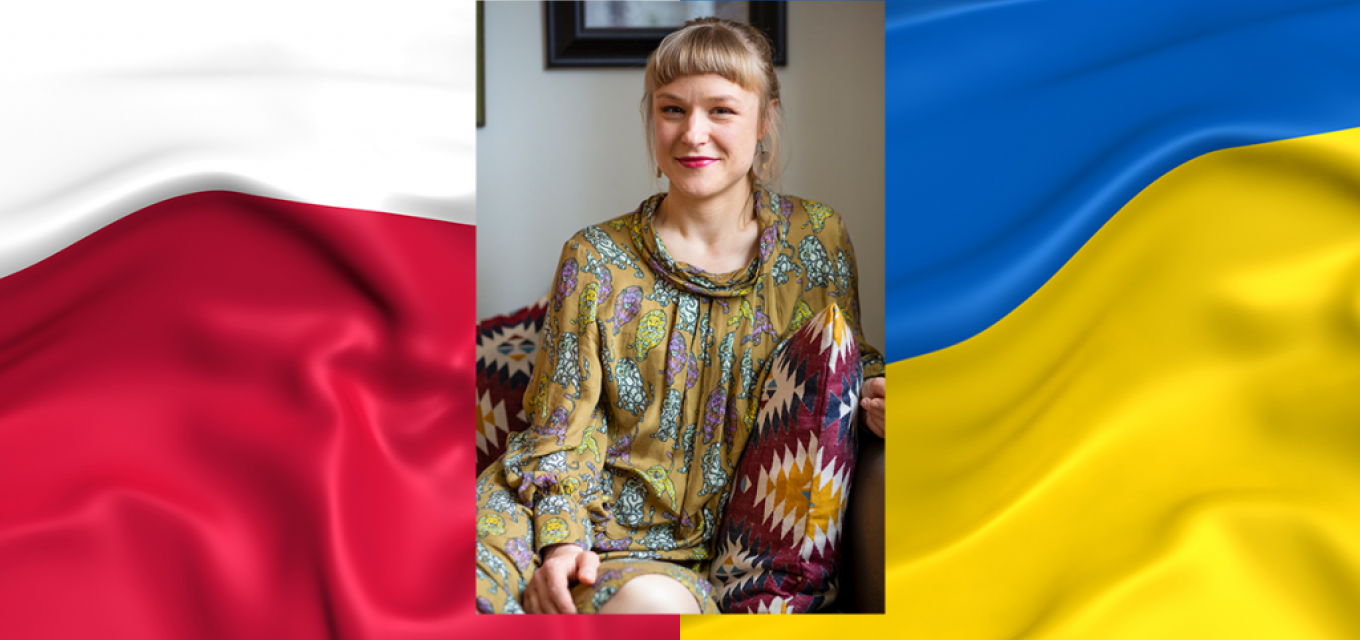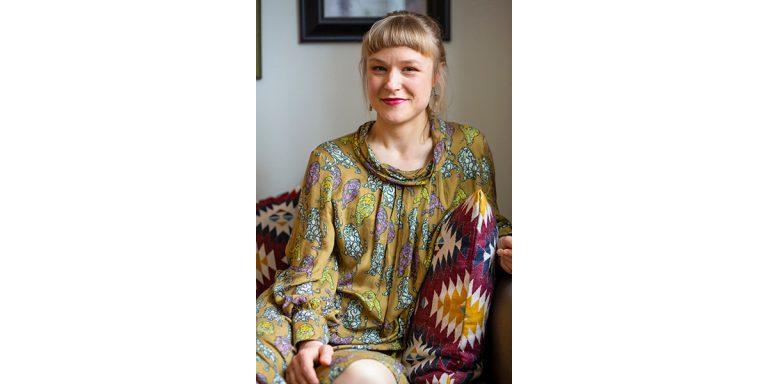2022 Fall

A relationship of mutuality
OLPD alum helps Ukrainian refugees navigate new surroundings.
Poland shares a 332-mile (535 km) border with Ukraine. Since the Russian invasion began in February 2022, more than 3.5 million people have come across that border to flee their war-ravaged homeland. And it has been Marta Shaw’s (PhD ’14) mission to help those arriving at her doorstep in Kraków, Poland.
A Polish native with a degree in English philology, Shaw was interested in studying systemic dynamics in education, particularly after attending a public institution during her country’s transition away from communism and later working at a private university. “How do you design systems of higher education that bring out the best in people instead of the worst?” she asks. “I looked at where I could learn about educational policy and it seemed like the U.S. was the best place.”
She enrolled in the comparative and international development education (CIDE) track in CEHD’s Department of Organizational Leadership, Policy, and Development (OLPD) and received her PhD in 2014. She moved back to Poland with an immediate position at Jagiellonian University, one of the oldest academic institutions in the world, founded in Kraków in 1364.

Photo credit: Agata Maziarz
Most recently, she was the director of a new master’s program in managing social change. “We actually launched it in the pandemic,” she says. “It was a difficult year launching a new program, having all new courses and new faculty. So when the year drew to a close, I was really ready for a sabbatical.”
Three months into the sabbatical, everything changed. Russia invaded Ukraine.
Shaw is very familiar with Ukraine, as she met her husband there in 2003 through a youth leadership development organization as well as having many friends there. “The comparison I would use in Minnesota is imagine that Iowa gets invaded, and all of a sudden, you have a rush of refugees from Iowa,” she says. “I think everyone in Minnesota knows someone from Iowa and they are people who are close to you, culturally.”
About two million refugees crossed into Poland within two weeks of the invasion. “The situation in Kraków is that we have over 222,000 refugees in our city alone and it’s a city of 700,000, about the size of Minneapolis, so you can just imagine what it’s like,” she says.
Because Shaw was on sabbatical and has an organizational leadership background, she says it just seemed she was in the right place for such a time as this. “It turned out that my phone number was the difference between a family having to sleep on a train platform after being in freezing weather for three days or having a warm bed to sleep in,” she says.
For years, Shaw had been involved each summer with one of the largest alternative arts festivals in her region of Europe. The festival is organized by about 1,500 volunteers, and when the war started, they worked together to offer help to fleeing Ukrainians. “Initially we just connected incoming refugees with families willing to host them,” she says. “At the time we thought this is just going to end soon and these people will be able to go right home. But that’s not been the case.”
In time, Shaw and her volunteer colleagues developed an organization called SLOT Hospitality Network. The organization is not just about providing food and shelter in the short term, but addressing refugee integration for the long term. “We organize regular gatherings for people and we just launched a scholarship program,” Shaw says. “People who get this scholarship don’t just get free money, they get to choose what kind of work, which is socially beneficial or creative, that they would like to do. The aim is to help them build their sense of independence and give them a basic sense of security.”
Since the scholarship recipients are bringing their skills to the table, Shaw sees her organization as weaving a relationship of mutuality rather than merely offering aid. She cites projects that she did with OLPD Professors David Chapman and Joan DeJaeghere that developed her understanding in this area. “You know about ‘don’t just give a person a fish, give a fishing rod,’ but we seek to do more than that—we work to create a small but healthy ecosystem where everyone has the opportunity to both give and take.
The metaphor Shaw and her organization use is a garden. “We have all these new transplants. We want to allow them to let down roots enough to survive, blossom, and be able to bring their gifts, their fruit, in the field that they’re in,” she says. “In a way that doesn’t take away resources or space from the existing plants that are in this garden.”
Shaw says Poland has just crossed the 40 million mark in terms of population due to the influx of refugees. “That’s really going to change our ecosystem,” she says. “I think a remarkable thing to note is that we took in over two million Ukrainian refugees in Poland and there’s not a single refugee camp. We want to make sure we’re cultivating a healthy ecosystem where there’s room for everyone and everyone gets to bring their fruit to the table.”
-KEVIN MOE